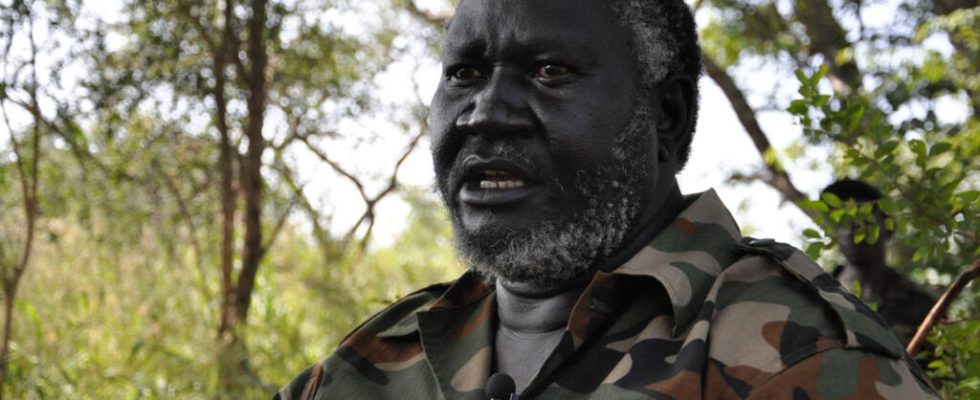In the civil conflict that has been shaking Sudan for more than a month, each of the protagonists has been trying to rally forces to their cause. On Friday, May 19, General al-Burhan officially dismissed General Daglo – known as Hemetti – from the Sovereign Council which runs the country. In his place, he appointed Malik Agar as number 2 of the regime and promoted several of his relatives in the army.
Malik Agar is a former cadre of the South Sudanese rebellion, but the region he comes from is part of Sudan, and he signed a peace agreement with Khartoum in 2020. Who is he ? Why was he chosen? Interview with South Sudanese researcher Jok Madut Jok, professor at Syracuse University, USA.
RFI: Who is Malik Agar who has just been appointed vice-president of the sovereign council by General al-Burhan?
Jok Madut Jok: Malik Agar is from Blue Nile State in southeastern Sudan. He is part of an ethnic group called the Ingessana. He was a senior commander of the SPLA, the Sudan People’s Liberation Army, based in South Sudan.
When the peace agreement between North and South (the Comprehensive Peace Agreement) was signed and South Sudan became an independent country, in 2011 the agreement forced the Blue Nile to remain on the side of Sudan and at that time Agar formed, along with other commanders , a group called the SPLM-Nord.
By the time Omar al-Bashir was overthrown in 2019, these commanders became part of the new coalition supporting the government, but their role was diminished when the military hijacked the revolution.
Malik Agar has a military force of around a thousand fighters. I imagine that General al-Burhan is calculating that by placing Agar at his side, this force will be accessible to him, that she will join the side of the Sudanese army and that this will increase his chances in the fights for control from Khartoum.
How do you analyze the fact that al-Burhan made this proposal to Malik Agar?
I think General al-Burhan felt that Hemetti was placing his pawns in South Sudan to potentially make him one of his supporters. We remember that a representative of General Daglo came to Juba, held a press conference in front of a large number of members of the government and met President Salva Kiir.
As a counterweight, al-Burhan must have thought of bringing Malik Agar and his forces to his side, that this would allow him to have a channel and influence in Juba. There are personal connections between Malik Agar and Salva Kiir. There are also institutional links, because the SPLM-North is still essentially linked to the armed forces of South Sudan. In fact, he receives his financial resources from Juba.
Salva Kiir, however, seems to be very close to Hemetti… will Malik Agar be able to change that in favor of al-Burhan? It’s not very clear, but it seems to be al-Burhan’s calculation.
Do you think the SPLM-North fighters can accept this alliance with al-Burhan?
I doubt that Malik Agar’s field commanders, those in his SPLM-North branch, would agree to fight for the Sudanese army and follow Malik Agar if he decides that is the strategy to adopt.
Ordinary people in Blue Nile don’t want anything to do with the Sudanese army and they don’t want anything to do with al-Burhan. They want it all the less as it is now perceived as the armed wing of the Islamist movement and of Omar el-Bashir. I do not believe that the people of Blue Nile would agree to become allies of those whom they see historically as their adversaries.
I believe that, at the moment, most Sudanese in the outlying regions are saying “Let al-Burhan and Daglo fight, let them taste the bitterness of the war they have always waged in our territories, let Sudan’s elite taste the dangers of the war they have often imposed on the peripheries. »
The people on the periphery say that the destruction there is in Khartoum can go on and that ordinary people should not side with one or the other.
► To read also: Sudan: wave of appointments in the entourage of General al-Burhan
